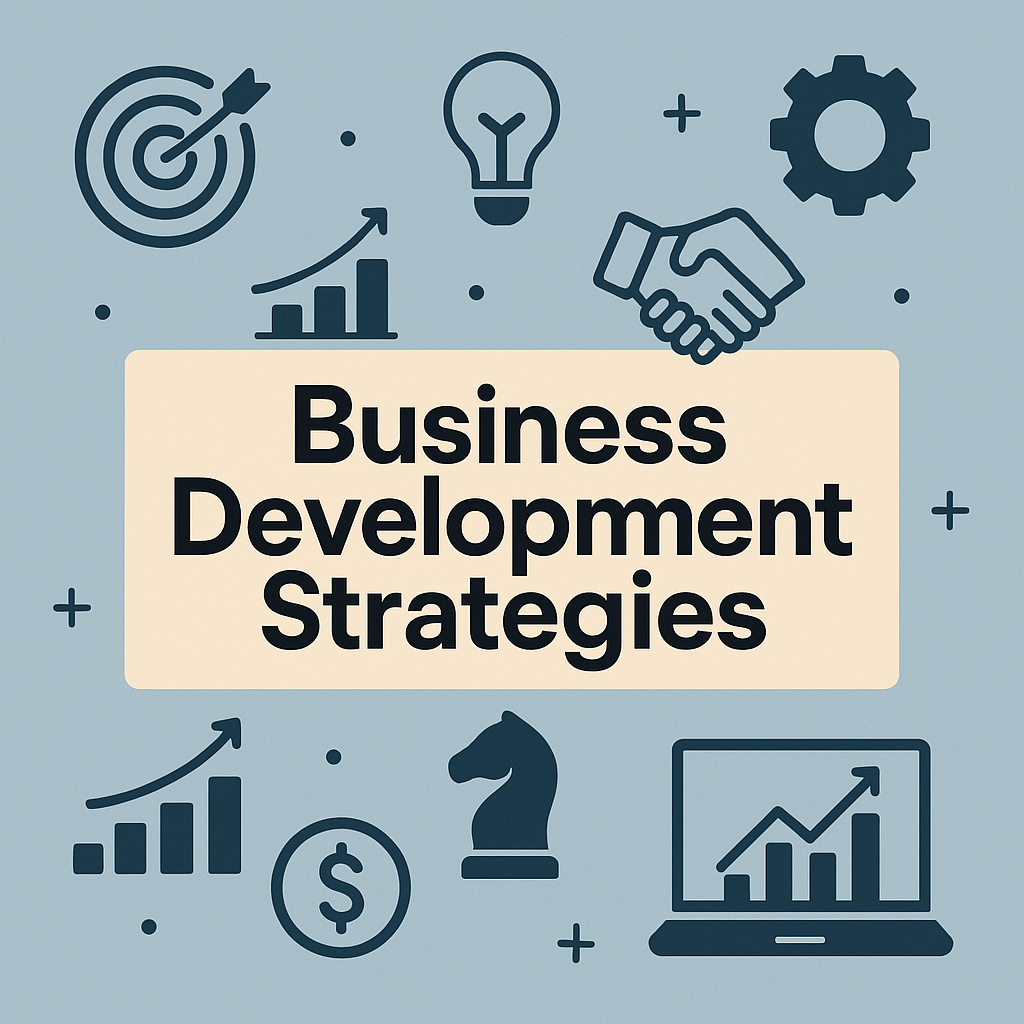Business development isn’t just about making sales—it’s about creating sustainable growth through strategic thinking, relationship building, and innovation. Over the years, I’ve written various blogs and been involved in diverse projects, from tech startups to ecommerce and social impact campaigns. Drawing from that experience, here are some of the most powerful business development strategies I’ve learned and used.

1. Start With a Strong Value Proposition
Every successful business begins with a solution to a real problem. Whether I was working with Multishines (a handyman service in Dubai) or launching ecommerce initiatives on Daraz for Eden Roc Cosmetics, the first question I asked was: “What problem are we solving, and how uniquely are we solving it?”
Tip: Craft your Unique Selling Proposition (USP) clearly. It should be front and center in your branding, messaging, and pitch.
2. Leverage Technology to Scale
One of the biggest advantages in today’s landscape is automation and digital transformation. From developing a breast cancer self-examination app to setting up integrated IT infrastructure for businesses, I’ve seen firsthand how the right tech stack can dramatically boost efficiency and customer engagement.
Strategy: Use CRM tools, marketing automation, and analytics platforms to track progress, nurture leads, and improve conversion rates.
3. Master the Art of Networking
Business development is personal. My collaboration with White Ribbon Pakistan taught me the value of partnerships and social alliances. Whether you’re forming B2B collaborations or working on social campaigns, relationships are currency.
Strategy: Attend industry events, reach out on LinkedIn, and build authentic partnerships that offer mutual value.
4. Data-Driven Decision Making
Every blog I’ve written emphasized this: don’t guess—measure. From SEO efforts in awareness campaigns to ecommerce performance on Daraz, analytics helped identify what’s working and where to pivot.
Tools I Use: Google Analytics, Hotjar, Ahrefs, and custom dashboards.
5. Invest in Content & Brand Authority
Whether it’s video content for a children’s ethics channel (Kid’s Mind) or awareness content for social causes, storytelling drives trust. Strong content marketing builds brand authority and supports long-term growth.
Tip: Blog consistently, use video, and make sure your voice is authentic and aligned with your brand values.
6. Build a Sales Funnel, Not Just Sales
In working with Venture Tech, we designed scalable strategies for contracting IT professionals. One of the key takeaways was the importance of a sales pipeline that nurtures cold leads into loyal customers or partners.
Stages to Consider:
- Awareness (SEO, Ads, Social Media)
- Interest (Email marketing, Webinars)
- Decision (Sales calls, Case studies)
- Action (Onboarding, Demos)
7. Don’t Just Sell—Solve
One thing I’ve always focused on: every sale should feel like a solution. This mindset helped me succeed in both social impact initiatives and commercial ventures. If the customer doesn’t feel understood, the deal is already lost.
Pro Tip: Train your team to become problem solvers, not pushy salespeople.
8. Adapt, Evolve, and Stay Consistent
Markets change, tech evolves, and customer behavior shifts—but consistency wins. From starting service-based businesses to developing digital solutions, staying agile while keeping core values intact has been a winning formula for me.